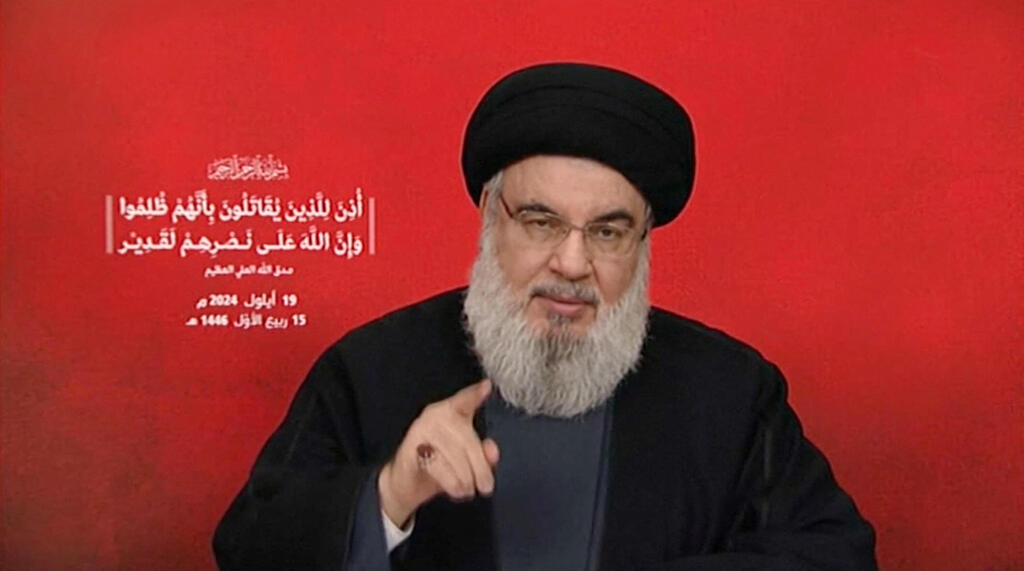Getting your Trinity Audio player ready...
Hezbollah chief Hassan Nasrallah remains acutely aware that Israel closely monitors his movements and could potentially strike at any moment.
In his latest televised address, Nasrallah spoke against a backdrop draped in red, symbolizing the bloodshed from last week's “pager attacks.” Despite frequently changing locations to evade detection, he knows Israel is never far behind.
Hezbollah leader Hassan Nasrallah
Over the weekend, voices emerged calling for his assassination. The seasoned terrorist leader, who has led Hezbollah for 32 years and maintains strong ties with Tehran, commands a powerful organization that is not only a significant force in Lebanon’s government and parliament but also the world’s largest and oldest terrorist group. While it relies on regular funding from Iran, Hezbollah also sustains itself through drug trafficking.
However, Israel has historically refrained from targeting Nasrallah, despite numerous opportunities when he traveled to Iran or the Bekaa Valley. For now, Nasrallah’s safety seems assured, especially if he opts for indirect or covert negotiations after Hezbollah suffered three significant blows last week.
His latest speech conveyed a rare sense of vulnerability as he addressed the “pager disaster” that struck Hezbollah, reiterating his warning to safeguard electronic equipment. Nasrallah likely anticipated his remarks would draw attention not only from Israel but also from U.S. intelligence and the Arab world. Even Lebanese citizens, eager to understand their country’s direction, quickly mocked him, signaling the speech failed to deliver its intended message.
Nasrallah continues to claim he commands 100,000 fighters, but Israeli experts believe this is an exaggeration, estimating the number at closer to 30,000. Hezbollah has exploited Lebanon’s severe economic crisis for recruitment, offering young Shiites a steady salary and food packages for their families.
If Israel ever decides to target Nasrallah, his successor is ready: Hashem Safieddine, 60, a relative and head of Hezbollah’s “senior experts group,” was appointed as the official heir in 2008.
Meanwhile, senior Hezbollah officials are reportedly dismayed that only Syria and Iran condemned Israel’s recent attacks, with little support from the broader Arab world. The organization, which is designated as a terrorist group by the Arab League, finds itself increasingly isolated. In Lebanon, some have even expressed schadenfreude at Nasrallah’s misfortune, further highlighting his dwindling support.






